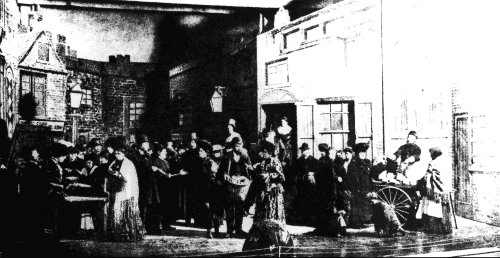
|
|

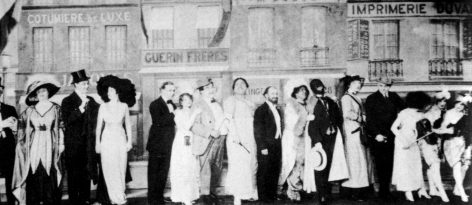
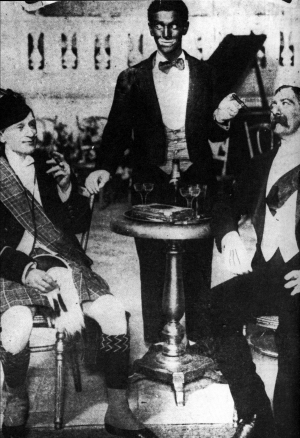 Jolson's next show opened on 5th March 1912, it was entitled 'Whirl Of Society'. Yet again this Shubert show ran at the Winter Garden theater, but this time Jolson WAS the star attraction. It would be the first time that Al played the part of 'Gus', a negro character fitting the Jolson style to a tee! Jolson became so attached to the character that he would often play between himself and Gus when off stage... for example; the song 'Sister Susie as sang by Al in 1914 features a sequence of dialect by Al in which he clark puts on the voice of the black negro character Gus.
Jolson's next show opened on 5th March 1912, it was entitled 'Whirl Of Society'. Yet again this Shubert show ran at the Winter Garden theater, but this time Jolson WAS the star attraction. It would be the first time that Al played the part of 'Gus', a negro character fitting the Jolson style to a tee! Jolson became so attached to the character that he would often play between himself and Gus when off stage... for example; the song 'Sister Susie as sang by Al in 1914 features a sequence of dialect by Al in which he clark puts on the voice of the black negro character Gus.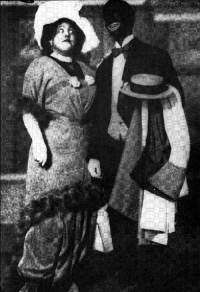
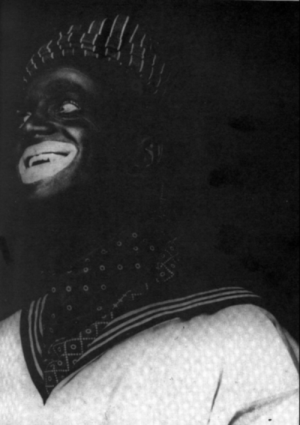 In 1916 'Robinson Crusoe Jr.' Al was billed, for the first time, as 'America's Greatest Entertainer', a title which would soon be rephrased 'The World's Greatest Entertainer'. The show would run for 139 performances and would of course not only play the winter Garden, but would be taken on a national tour. It was the only show Jolson had taken part in which seem to have anything like a decent plot, of course it soon became clear that each performance would simply be another 'Jolson concert'. Al sang 'Yaaka Hula Hickey Dula', 'Where Did Robinson Crusoe Go With Friday On Saturday Night?', 'Where The Black Eyed Susans Grow' and any song he felt like singing. At one point in this show Al introduced a negro choir and performed a medley of spiritual songs... 'The Old Folks At Home', 'Swing Low' and several other Stephen Foster songs. At one point Al was taking home an estimate $2,500 per week, this including his Sunday night shows and any other work the Shuberts could get him involved with. Things were very different for Al's brother Harry, who was being paid $25 per week by Al to stay OFF the stage.
In 1916 'Robinson Crusoe Jr.' Al was billed, for the first time, as 'America's Greatest Entertainer', a title which would soon be rephrased 'The World's Greatest Entertainer'. The show would run for 139 performances and would of course not only play the winter Garden, but would be taken on a national tour. It was the only show Jolson had taken part in which seem to have anything like a decent plot, of course it soon became clear that each performance would simply be another 'Jolson concert'. Al sang 'Yaaka Hula Hickey Dula', 'Where Did Robinson Crusoe Go With Friday On Saturday Night?', 'Where The Black Eyed Susans Grow' and any song he felt like singing. At one point in this show Al introduced a negro choir and performed a medley of spiritual songs... 'The Old Folks At Home', 'Swing Low' and several other Stephen Foster songs. At one point Al was taking home an estimate $2,500 per week, this including his Sunday night shows and any other work the Shuberts could get him involved with. Things were very different for Al's brother Harry, who was being paid $25 per week by Al to stay OFF the stage.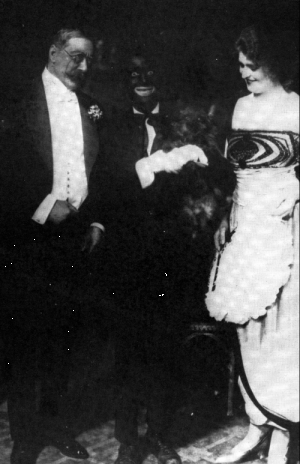 14th February 1918 was the opening of Jolson's biggest hit 'Sinbad'. In this show Jolson was given his best numbers yet; 'N' Eveything', 'I'll Say She Does', 'Chloe', 'Rockabye', 'Mammy' and the immortal 'Swanee' written by George Gershwin and Irving Caesar. The Winter Garden show had Al playing Sinbad The Sailor as Gus, and in a strange twist included a sequence with Al playing the front end of a talking mule! By this time Al's records were selling like hot cakes and his sheet music was outselling all the other Broadway stars. Late in 1920 Al decided that Sinbad had done enough, and he closed the show.... but only to open a new show in 1921 entitled 'Bombo'. For once the Winter Garden would not be the venue, this time the newly opened 'Jolson Theater' would house the production. It was a 1,681 seater theater, and on the opening night in October 1921 not an empty seat was in sight. During Bombo Al would sing his most popular hits 'Mammy' and 'Swanee' as well as introducing new ones such as 'April Showers' 'Dirty Hands, Dirty Face' and 'Toot Toot Tootsie', songs which would live in the memory for many years, and be brought back to life in the 1946 biography 'The Jolson Story'. Bombo would tour the states and be Al's biggest ever success, earning him more money than ever before, and more fans. The show would not close until 1925!
14th February 1918 was the opening of Jolson's biggest hit 'Sinbad'. In this show Jolson was given his best numbers yet; 'N' Eveything', 'I'll Say She Does', 'Chloe', 'Rockabye', 'Mammy' and the immortal 'Swanee' written by George Gershwin and Irving Caesar. The Winter Garden show had Al playing Sinbad The Sailor as Gus, and in a strange twist included a sequence with Al playing the front end of a talking mule! By this time Al's records were selling like hot cakes and his sheet music was outselling all the other Broadway stars. Late in 1920 Al decided that Sinbad had done enough, and he closed the show.... but only to open a new show in 1921 entitled 'Bombo'. For once the Winter Garden would not be the venue, this time the newly opened 'Jolson Theater' would house the production. It was a 1,681 seater theater, and on the opening night in October 1921 not an empty seat was in sight. During Bombo Al would sing his most popular hits 'Mammy' and 'Swanee' as well as introducing new ones such as 'April Showers' 'Dirty Hands, Dirty Face' and 'Toot Toot Tootsie', songs which would live in the memory for many years, and be brought back to life in the 1946 biography 'The Jolson Story'. Bombo would tour the states and be Al's biggest ever success, earning him more money than ever before, and more fans. The show would not close until 1925!